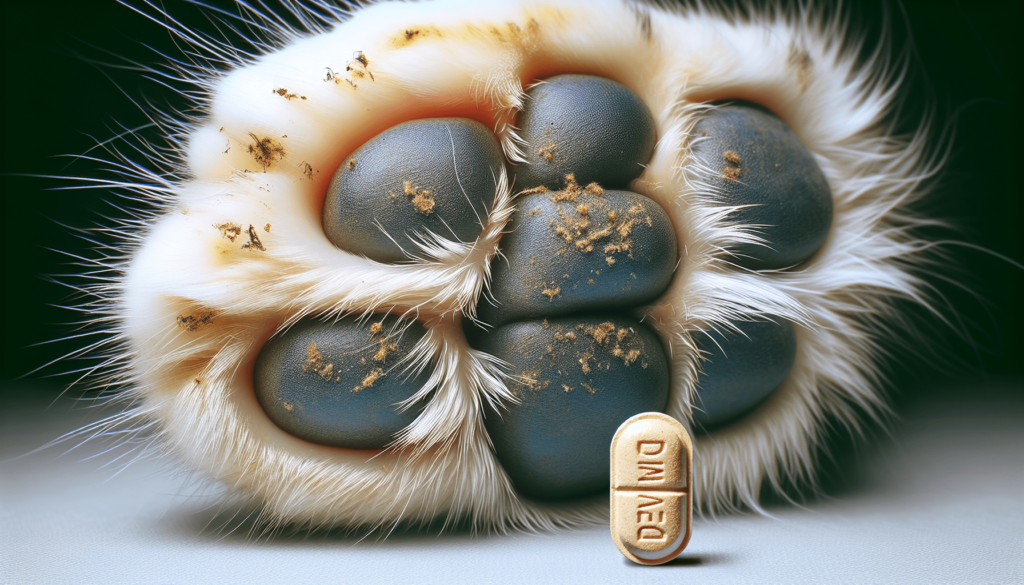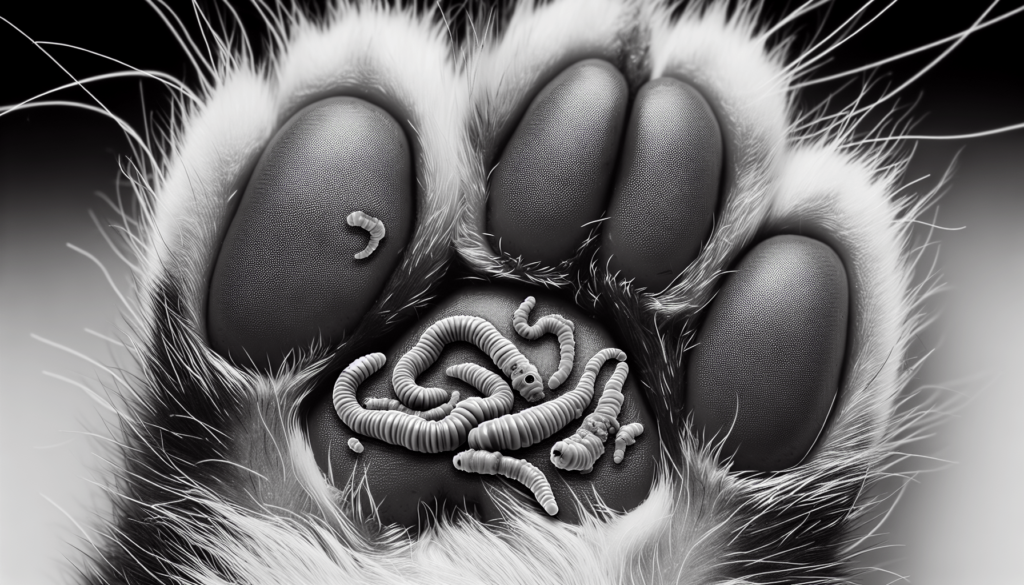Can Humans Get Roundworms From Cats
Hey there! Have you ever wondered if humans can get roundworms from cats? In this article, we will explore the potential risk of contracting roundworms from our furry feline friends. Let’s dive into the facts and find out how you can protect yourself and your family from these pesky parasites. Stay tuned for some valuable insights! Can Humans Get Roundworms From Cats
Have you ever wondered if you could get roundworms from your furry feline friend? Many cat owners worry about parasites such as roundworms being transferred from their cats to humans. In this article, we will explore the topic in depth to give you a better understanding of the risks involved.
What are Roundworms?
Roundworms are a type of parasite that can infect the intestines of animals, including cats. They are long, spaghetti-like worms that live in the gastrointestinal tract and can reproduce quickly, leading to a heavy infestation if left untreated. Roundworm infections are common in cats, especially kittens, as they can be easily transmitted through the environment or from mother to offspring.
What do Roundworms Look Like?
Roundworms are typically white or light brown in color and can reach lengths of up to several inches. When passed in the feces or vomit of an infected cat, they may appear as long, spaghetti-like strands. Adult roundworms can sometimes be seen in the stool of an infected cat or in the vomit if the cat has a heavy infestation.

Can Cats Transmit Roundworms to Humans?
The short answer is yes, cats can transmit roundworms to humans. The most common way this transmission occurs is through the ingestion of roundworm eggs shed in the feces of an infected cat. This can happen when a person accidentally ingests contaminated soil, water, or objects that have been in contact with the eggs.
How Do Humans Become Infected with Roundworms from Cats?
Humans can become infected with roundworms from cats in several ways:
-
Ingestion of Contaminated Soil: Roundworm eggs shed in cat feces can survive in the environment for long periods of time. When a person comes into contact with contaminated soil while gardening or playing outdoors, they may inadvertently ingest the eggs.
-
Poor Hygiene Practices: Failure to wash hands thoroughly after handling a cat’s litter box or after coming into contact with an infected cat can lead to the transmission of roundworms.
-
Ingestion of Contaminated Food or Water: Roundworm eggs can be present in contaminated food or water sources, especially if they have been exposed to infected cat feces.
Who is Most at Risk of Getting Roundworms from Cats?
Certain groups of people are at higher risk of contracting roundworms from cats:
- Children: Young children are more likely to put their hands in their mouths after playing in contaminated soil or handling cats, increasing the risk of infection.
- Pregnant Women: Pregnant women have a weakened immune system, making them more susceptible to parasitic infections.
- Immunocompromised Individuals: Those with weakened immune systems, such as individuals with HIV/AIDS or undergoing chemotherapy, are at higher risk of severe complications from roundworm infections.

Symptoms of Roundworm Infection in Humans
After being infected with roundworms from cats, humans may experience a range of symptoms, including:
- Abdominal pain
- Diarrhea
- Weight loss
- Fatigue
- Coughing (if larvae migrate to the lungs)
These symptoms can vary depending on the severity of the infection and the individual’s immune response. In some cases, roundworm infections may be asymptomatic, especially in mild cases.

Diagnosing Roundworm Infections in Humans
If you suspect that you may have been infected with roundworms from a cat, it is important to see a healthcare provider for proper diagnosis and treatment. Diagnosis typically involves a stool sample test to look for the presence of roundworm eggs. In some cases, imaging tests such as ultrasounds or X-rays may be needed to detect the worms in the body.
Treatment for Roundworm Infections in Humans
Roundworm infections in humans can be effectively treated with anthelmintic medications, which are medications specifically designed to kill parasitic worms. Your healthcare provider will prescribe the appropriate medication based on the severity of your infection and your overall health condition. It is important to follow the treatment regimen as directed to ensure that the infection is completely eradicated.

Preventing Roundworm Infections from Cats
The best way to prevent roundworm infections from cats is through proper hygiene practices and regular veterinary care for your feline companion. Here are some tips to help reduce the risk of transmission:
-
Regular Deworming: Ensure that your cat receives regular deworming treatments as recommended by your veterinarian to prevent and control roundworm infestations.
-
Clean Litter Box: Scoop your cat’s litter box daily and change the litter frequently to prevent the buildup of roundworm eggs.
-
Wash Hands: Always wash your hands thoroughly after handling your cat or cleaning the litter box to reduce the risk of infection.
-
Keep Indoor Cats Indoors: If possible, keep your cats indoors to minimize their exposure to potentially contaminated environments.
-
Teach Children Proper Hygiene: Educate children about the importance of washing hands after playing with pets or in outdoor areas where cat feces may be present.

Conclusion
In conclusion, humans can get roundworms from cats, but with the right precautions and preventative measures, the risk of transmission can be greatly reduced. By maintaining good hygiene practices, regular veterinary care for your cat, and seeking prompt treatment if you suspect an infection, you can protect yourself and your family from the potential dangers of roundworms. Remember to consult with your veterinarian and healthcare provider for personalized advice and guidance tailored to your specific situation.







